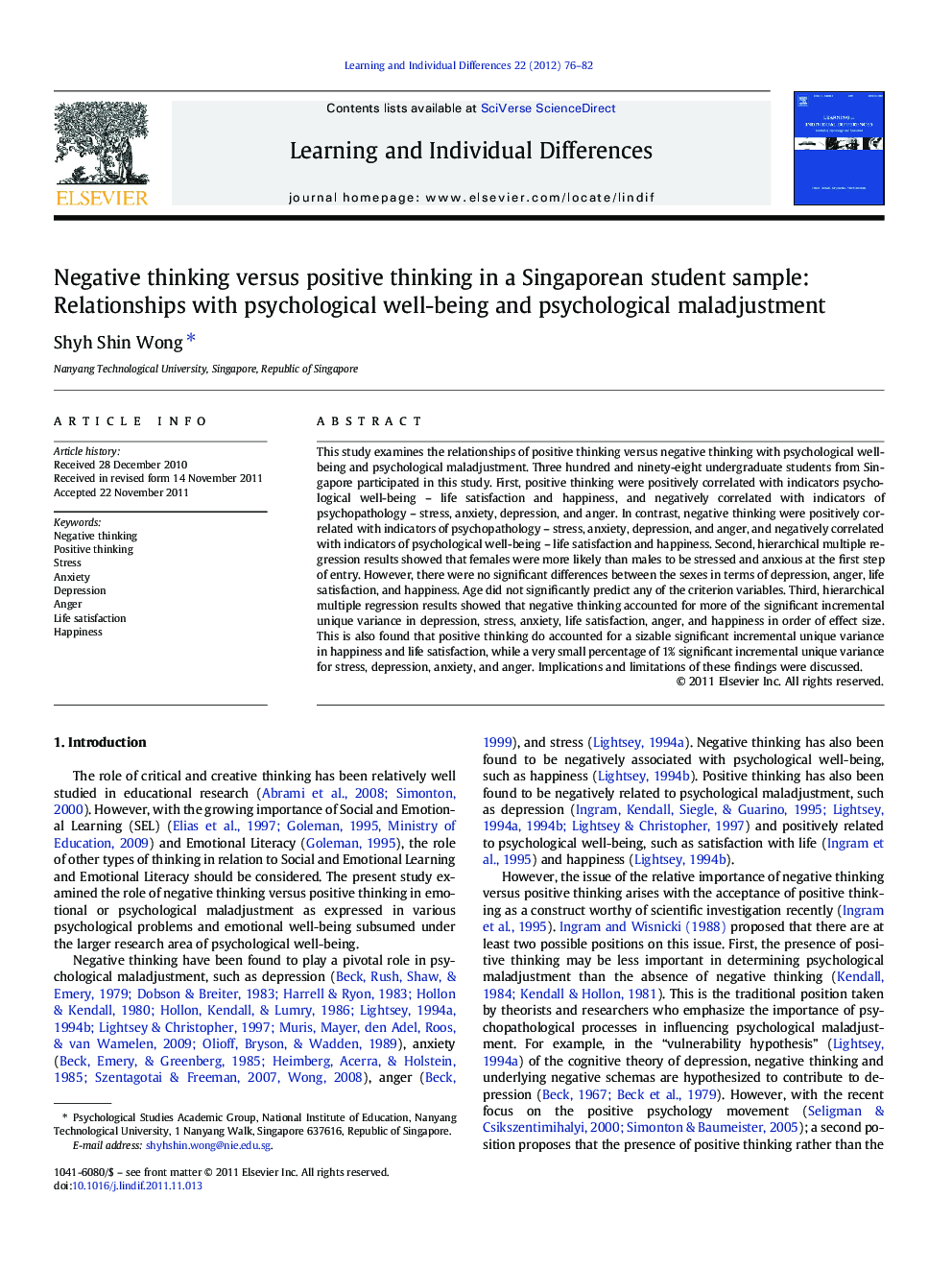| Article ID | Journal | Published Year | Pages | File Type |
|---|---|---|---|---|
| 365248 | Learning and Individual Differences | 2012 | 7 Pages |
This study examines the relationships of positive thinking versus negative thinking with psychological well-being and psychological maladjustment. Three hundred and ninety-eight undergraduate students from Singapore participated in this study. First, positive thinking were positively correlated with indicators psychological well-being – life satisfaction and happiness, and negatively correlated with indicators of psychopathology – stress, anxiety, depression, and anger. In contrast, negative thinking were positively correlated with indicators of psychopathology – stress, anxiety, depression, and anger, and negatively correlated with indicators of psychological well-being – life satisfaction and happiness. Second, hierarchical multiple regression results showed that females were more likely than males to be stressed and anxious at the first step of entry. However, there were no significant differences between the sexes in terms of depression, anger, life satisfaction, and happiness. Age did not significantly predict any of the criterion variables. Third, hierarchical multiple regression results showed that negative thinking accounted for more of the significant incremental unique variance in depression, stress, anxiety, life satisfaction, anger, and happiness in order of effect size. This is also found that positive thinking do accounted for a sizable significant incremental unique variance in happiness and life satisfaction, while a very small percentage of 1% significant incremental unique variance for stress, depression, anxiety, and anger. Implications and limitations of these findings were discussed.
► Positive thinking was positively correlated with life satisfaction and happiness. ► Positive thinking was negatively correlated with stress, anxiety, depression, and anger. ► Negative thinking was positively correlated with stress, anxiety, depression, and anger. ► Negative thinking was negatively correlated with life satisfaction and happiness.
